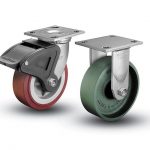Female sex productive parts really should come with a warning label. These intricate parts of our bodies are constantly on the go, and when something goes wrong, like with many hidden parts of the body, it is often much more difficult to diagnose issues, regardless of whether there are symptoms. While every ‘body’ is different, there are some signs that can point to fibroid issues.
Often these symptoms can just be mild and are no cause for concern, but sometimes they can reflect a bigger issue that might need to be looked at.
This piece will take a look at some of the symptoms of fibroids you should look out for!
What Are Fibroids?
Fibroids are essentially non-cancerous growths that formulate on the uterus, usually during the reproductive years – which is quite the time span. They very rarely turn into cancer and can be so small the human eye is unable to see them – positive news. However, the downside is that they can also expand to extremely uncomfortable sizes and cause many unpleasant side effects that we can all do without.
These uninvited growths plague around an estimated 26 million women between the ages of 15 to 50, although a lucky few will not experience any symptoms.
Heavy Menstrual Bleeding
As if shedding uterus lining every month is not enough for us to deal with, just adding fibroids into the mix can make the experience even more unpleasant and uncomfortable. Fibroids can press against the uterine wall, which then makes the bleeding heavier and encourages clots to form. And, just to add insult to injury, fibroids can also stimulate the growth of blood vessels, meaning your periods can get heavier, become irregular, and spotting might even become a part of your life.
Pelvic Pressure & Pain
Another common side effect of menstruation is pain, and fibroids can also contribute to its strength. That being said, it’s important to note that this pain is usually an ongoing dull discomfort rather than sharp stabbing pains and can feel like pressure on your lower abdominal region. This can sometimes also make it difficult to lie on your front, exercise, bend down, or use other ranges of motion.
If you suspect you are a victim of uterine fibroids, do not suffer in silence. Find out about uterine fibroids treatment in NYC and start a plan to help you move forward.
Fibroids & Going To The Toilet
Many of us have heard how our bodies are interconnected, so perhaps unsurprisingly, fibroids can also upset other working parts in the same area. Needing to urinate frequently can become a problem, and constipation might also be noticeable. If you have these issues, along with heavy menstruation and uncomfortable pressure in your lower stomach, be sure to see a doctor so they can rule out different probable causes. If you have fibroid treatment, you can use techniques to retrain the bladder so you can live life a little further away from the closest toilet!


